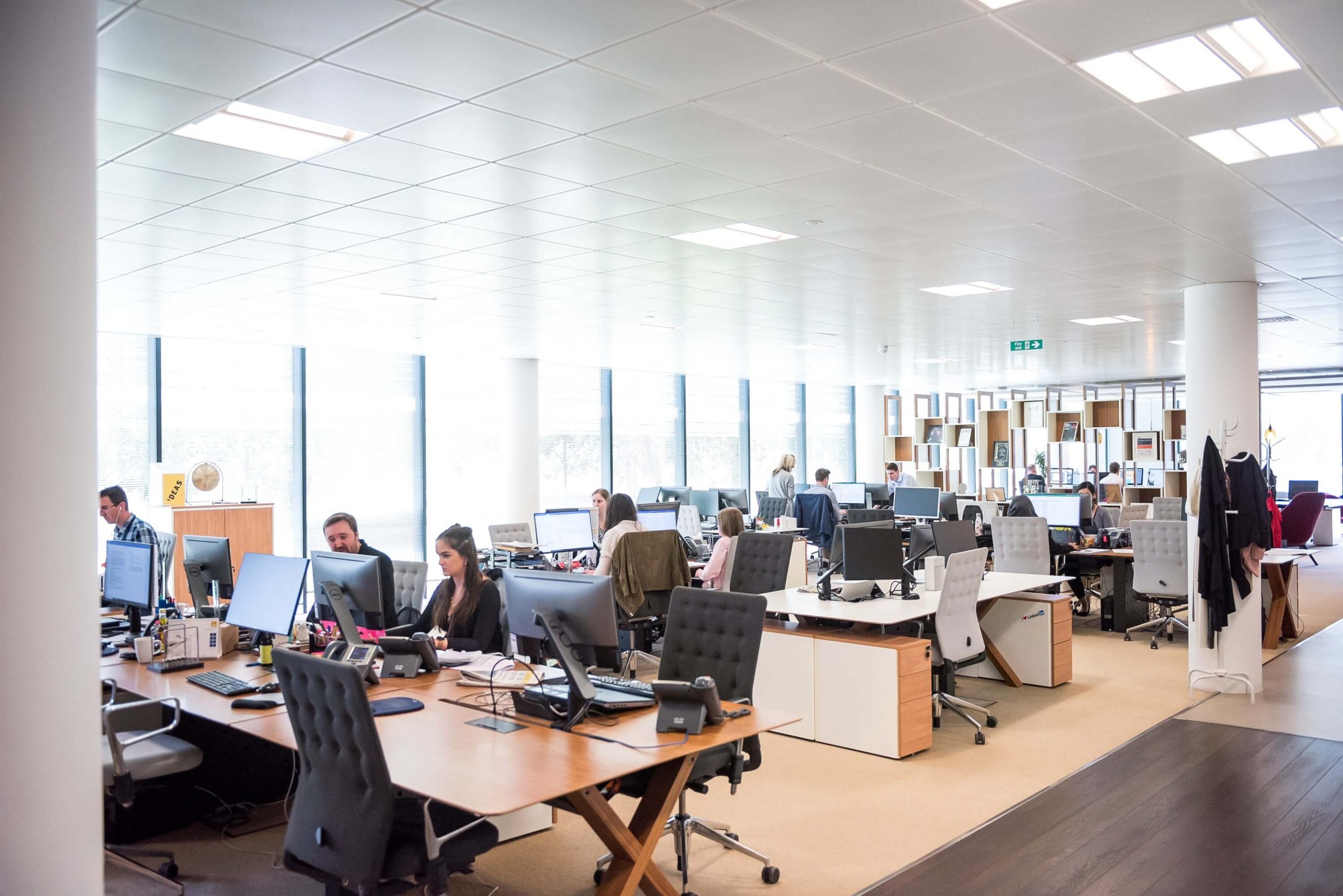Social change is a significant shift in cultural beliefs and standards through time and behavior patterns. Sociologists define “major” change as a shift with considerable social repercussions.
Slavery’s abolishment, the industrial revolution, and the feminist movement are a few instances of significant social changes that left a lasting impression. Sociologists of today readily recognize the critical part social movements play in motivating society to effect social change.

Sociologists have proposed the evolutionary, functionalist, and conflict theories of social change due to their efforts to comprehend the nature of long-term social change, which includes looking for patterns and causes.
It’s no secret that technology has profoundly impacted society. From how people communicate to connect, tech has changed how individuals live their lives. But what is less well known is how tech can be used to drive social change.
However, this blog post will explore how technology innovation can be used to create positive social change in the world. We’ll also look at the impact of technology innovation on social change and what history teaches us about our identity and future.
The Perspective on Social Change
Technological developments may undoubtedly lead to social change. Still, it is essential to consider all the other elements at work, such as the state of the society today, its history, cultural norms, infrastructure, and much more.
It’s interesting to note that there are various viewpoints on societal transformation. For instance, recency bias may affect how we perceive social change and contribute to our society’s growth.
Technology Innovation and Social Change always happen for the better when we examine the social changes that occurred during the previous century, particularly in the United States, but this is not always the case.

We don’t have to look far into history to find instances of undesirable societal transformation, such as in Mussolini’s Italy or Hitler’s Germany. There is a theory that holds that all social change is detrimental.
The hypothesis of degradation contends that man was once in a perfect state of happiness but that, through time, this happiness began to decline. The cyclic theory, which asserts that social change is merely a phase in the cycle that human civilization experiences, is another.
According to this view, modern civilization is the final stage; thus, the cycle will start all over when the contemporary era ends. According to the cycle idea, social change results from society being created, expanding, maturing, declining, dying, and resurrecting.
Ogburn’s Theory of Technology Innovation and Social Change
A sociologist called William Fielding Ogburn posted a theory of social change in 1922 that claimed societal reactions to tech slowed down progress rather than being the primary driver of it. According to the hypothesis, there are four stages of technical advancement, including:
- Invention – The invention process is where new kinds of tech are created.
- Accumulation -Tech grows through accumulation, the process through which new inventions are made more quickly than earlier ones are forgotten.
- Diffusion – When an idea spreads from one culture or field to another, it is known as diffusion.
- Adjustment – The final stage is an adjustment, during which the non-technical facets of culture embrace the invention. His thesis was a technological determinism theory since it saw technology as the primary driver behind societal change.
The Technological Shift in the Worldwide Map
New technology will occasionally have a historical impact on social transformation and the entire world. We call this a technical transition. By just seeing the effects that these technological advances have had on society, it is simple to date them in the context of world history. Here are a few instances of such technological changes:
Electrification
A candle, lantern, or torch was the sole source of illumination available before the invention of electricity. Between 1870 and 1930, electricity was developed, and everything changed between that time leading to its widespread use.

The ability to safely illuminate houses and keep businesses open into dusk was among the first changes. Telephones, freezers, electric ovens, elevators, subways, and many other innovations were made possible by electricity, and these techs would revolutionize the world.
Motorization
Humanity quickly figures out how to turn mechanical energy into electric energy, leading to the creation and widespread use of cars, motorcycles, buses, trams, and other vehicles.
Everything changed due to motorization, which made it simpler to transfer things from one location to another and sparked an economic boom. Since roads and highways were to be created to accommodate motorized vehicles, it also altered how cities were constructed.
Technology shifts can be easily detected by looking back in time, but predicting the future is more. However, many people think that the Internet of Things (IoT) is the upcoming major technological revolution that is already starting.
Artificial Intelligence
The advent of machine-learning techniques and other AI tools is beginning what some call the next industrial revolution—except this time we’re not replacing our arms and legs, but our brains.
The possibilities are endless. Humanitarian AI applications range from producing text or audio clips on demand, over optimal route planning, to predicting migrant flows, or analyzing satellite imagery.
Impact of Technology on Social Change
Technology and science are vital components of modern life. They influence everyone’s lives and transcend geographical bounds. It is possible to view human evolution in terms of technological change.
The development of fire and the wheel altered human history. Regarding technological change, different historical eras, such as the hunter-gatherer, agrarian, and industrial societies, can be distinguished from one another.
The technological aspects stand in for the circumstances that men have produced that significantly impact his existence. Civilization produces technology. Veblen believed that social change could only be explained by technology.
According to W.F. Ogburn, technology alters society by altering our surroundings, which we then adapt. This shift typically affects the physical environment, and our adjustments in response to these changes frequently alter social norms.
The low productivity in the rural culture served only to ensure that people could survive. The social system is an open system that constantly exchanges resources with the outside world, including materials, energy, and information. As it changes its founding institutions to fit the new environment, social changes start to take shape.
People relied on farming and raising cattle in pastoral and horticultural communities. The society’s population, which the chiefs or kings ruled, grew, and social stratification emerged. With the widespread use of writing and printing in pre-industrial civilized societies, science and art could advance to previously unheard-of levels of affluence.
Generally speaking, technical advancement has been a major factor in social development throughout human history. The only way people could have survived would have been by hunting and collecting.
Technology has evolved into not only an internal, independent component of the modern productivity system but also a determining factor and the primary force behind the growth of these forces.
Technology and Industrialization
The development of industries or the process of industrialization has benefited from technology. “industrialization” broadly refers to expanding modern industry with its associated social, economic, and political conditions and issues.
It provides a broad overview of the development of a society in which the industrial sector has a significant impact. The family’s economic significance has diminished. The factory production system is linked to industrialization.

The factories have reduced the cost of goods, enhancing the quality and increasing productivity. The entire production process is automated. Traditional skills have become less in demand, and artisans have lost their jobs. Numerous people could find work as a result of large factories.
Men have so dominated the workforce in terms of quantity. The industrialization has impacted the economy’s nature, personality, and economic growth. It has aided in the development of urban areas or the urbanization process.
Technology and Urbanization
Cities have expanded across numerous nations due to the expansion of industries. Urbanization refers to the spread of an urban center’s influence into a rural hinterland. Urbanization is shifting from rural areas to cities, changing from agriculture to other city-specific activities, and changing one’s behavior in response.
Both the quantity and scale of large cities have increased at an unprecedented rate. Thus, urbanization is only considered to have occurred when a significant section of a region’s population moves to a town. Today, urbanization is a global phenomenon.
People have been relocating toward industrial districts in search of employment due to industrialization. The industrial regions grew as a result into towns and cities.
Technology and Modernization
Modernization is a process that denotes the acceptance of contemporary values and ways of life. It refers to an effort on the part of people, especially those bound by custom, to adapt themselves to the current circumstances, needs, styles, and general methods.
It denotes a shift in peoples’ eating, dressing, and speaking behaviors and their preferences for certain foods, ideas, and hobbies. Science and technology are valued more highly by people who are modernizing.
Many societies worldwide have become more contemporary thanks to scientific and technical advancements. They have significantly altered the entire structure of social relationships and replaced outdated notions with new ones.
Development of Communication and Transportation Techniques
Large-scale national and international trade is the result of the development of transportation and communication. Transporting people and products has been made easier by using roads, trains, ships, and airplanes.

There has been an essential advancement in the post and telegraph, radio and television, newspapers and magazines, telephone and wireless, among other things. These advancements have been furthered by space exploration and satellite launches for communication.
They have facilitated regular communication between individuals from various regions of the country or the globe.
Economic Change and the Development of New Social Classes
The industrial economy has evolved from the rural economy due to the introduction of the factory system of production. The capitalist and working classes are the two dominating classes created by the industrial or capitalist economy.
Due to their disparate interests, these two classes are constantly at odds with one another. The middle class has developed over time as an intermediary class.
Technology and Unemployment
The issue of unemployment is a result of the rapid development of technology. In addition to creating work for men, machines also eliminate men’s jobs through labor-saving technologies. Because of this, there is technological unemployment.
Technology and War
The risky impact of technology is made clear by how modern warfare is conducted. Weaponry has increased humankind’s fears and anxieties. They can effortlessly wipe out the whole human race, demonstrating how technology may be abused. Therefore, the risk to humanity increases as technology advances.
Change in Social Institutions
Social institutions are not immune to the effects of technology. Technology has significantly changed how individuals live. Family, religion, morality, marriage, state, and property institutions have all changed.
Modern technology’s removal of the industry from home has fundamentally altered how families are structured. Other organizations have taken over many of the family’s roles. The sacredness of marriage is eroding.
More and more marriages are experiencing instability. Divorce, desertion, and separation incidents are on the rise. Technology has improved women’s standing but has also exacerbated tensions in the relationships between men and women at home. The association is handled more like a civil transaction than a spiritual one. The connection is dealt with more like a civil transaction than a spiritual one.
Religion’s influence over its adherents is waning. People are becoming less religious in perspective and more secular, logical, and scientific. Scientific inventions and discoveries have shattered the roots of religion.
What History Teaches Us About Our Identity and Future
We can learn a lot from history about how technological improvements have impacted our society and how they might affect the future.
The following are five key conclusions we can draw about how historical technical improvements have affected and will continue to influence societal change:
Lesson 1: History Is Cyclical
New technology improves the answers we already have for problems that have existed for a long time. Consider the internet, which has made long-distance communication nearly instantaneous. But this is not the first time that technological innovation has made it possible to communicate over great distances; the telegraph achieved the same feat when it was developed roughly two centuries ago.

Both technologies had the same effects: they upset traditional economic models and altered social interaction patterns. In essence, even though technology is constantly developing and improving, which affects social change, everything has already happened; history is cyclical.
Lesson 2: A Diploma of the Real World Is the Virtual One
Although it may appear to be a bizarre virtual world, the internet is merely an extension of the real world. This is because modern communications technologies are enhancements and extensions of daily life. Whether shopping, watching movies, creating virtual houses, or conducting business, what individuals do online reflects what they do in real life.
Lesson 3: Humans Will Use Technology for Their Ends
Individuals utilize tech for their purposes and in the best ways. If new technologies enable people to achieve their needs and desires, they will soon adopt them. This explains why the internet was swiftly embraced as a medium for social connection.
Lesson 4: Technology Is Inherently Disruptive
Because it disrupts established practices, new tech is disruptive now and will always be disruptive. For instance, introducing a TV to a rural, technologically backward community can fundamentally alter its culture.
Villagers will start learning new things from television, including unconventional methods of doing things that will challenge their established practices. They might even start acting like the individuals they watch on TV, which might alter their society.
Of course, new tech also disrupts highly technological cultures. Just consider how, as the internet gained more and more popularity, it threatened established business practices.
Lesson 5: As We Negotiate How Technologies Are Used, Important Questions Arise
While new tech is created with specific uses in mind, it will undoubtedly be used for additional reasons that weren’t initially planned. For instance, the internet was intended to provide meaningful connections between people worldwide. This has both sound and terrible effects.

Still, there are various issues with how it is used, as indicated by worries about identity theft, privacy, and online bullying. To effectively plan for the future, one must apply new tech and think critically about the world.
Final Words
Technology has been the force behind the change of society, including the revolution from primitive society to information society, the appearance of industrialization capitalism, and globalization. The available resources are enriched from individuals to nations, and communicative modes have become increasingly diversified.
Economic considerations are essential in determining how tech affects society, but its effects go beyond that: politics and culture impact tech and tech itself.

Despite being a relatively recent development in human history, modern civilization has undergone a quick and significant transformation as a result of the advancement of tech.
Social interactions and social structure have changed as a result of technological advancement. However, tech has also led to excessive energy use, environmental issues, and a rise in inequality between wealthy and developing countries.

